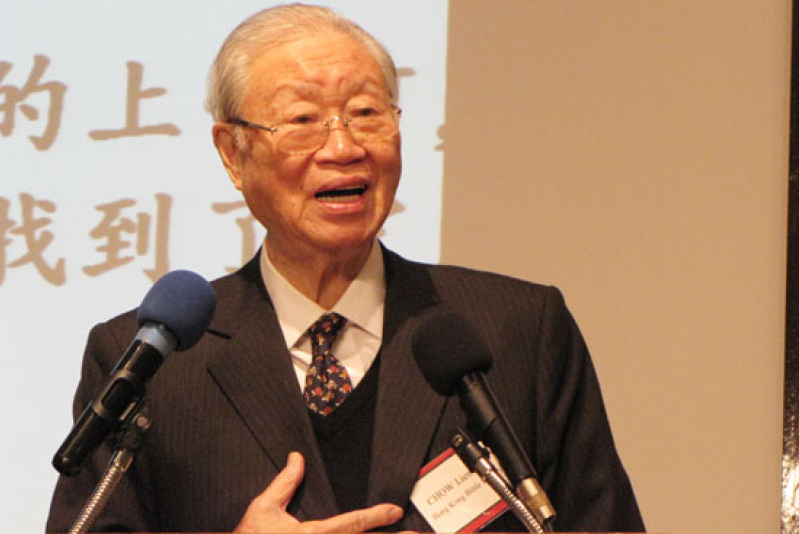
Last month, the pastor who has ministered to three generations of Taiwanese presidents, in particular, the Chiang family, visited San Francisco, Los Angeles, and New York to promote for the newly revised Chinese Bible.
While still physically agile and clear in thoughts, Rev. Chow Lien-hwa, 90, preached a forceful message on a Sunday morning on the topic of “God’s Temple” at the Flushing Faith Bible Church in New York.
Quoting Psalms 84, Chow brought out the meaning of God’s temple. He said that although God’s temples were recorded in the Old Testament as grand and magnificent, the outer appearances of the temple aren’t the symbol for God’s temple.
While many declining churches in Europe and North America have grand and magnificent appearances, they are like a shell that has lost the presence of God, so they cannot be called God’s temples.
“Then, where is God’s temple” Chow asked.
The senior pastor said that the key to this question is not found in the outward appearances of this building, but it is in the people within the church; if there is a group of people with meek and humble hearts gather together, seeking for the truth and worshipping God, then that place of gathering is Jehovah’s temple.
In addition, Chow exhorted the believers to have a proper attitude when going to meet God at the temple.
“We go to church not out of “a sense of ‘responsibility’, but because we can meet God in the church and enjoy the joy being together with God,” said Chow.
Lastly, the seasoned Chinese minister encouraged everyone to seek for spiritual growth, to live a life pleasing to God, and make your own church the most beautiful temple of God.
[Editor's note: reporter Luke Leung translated the article.]






